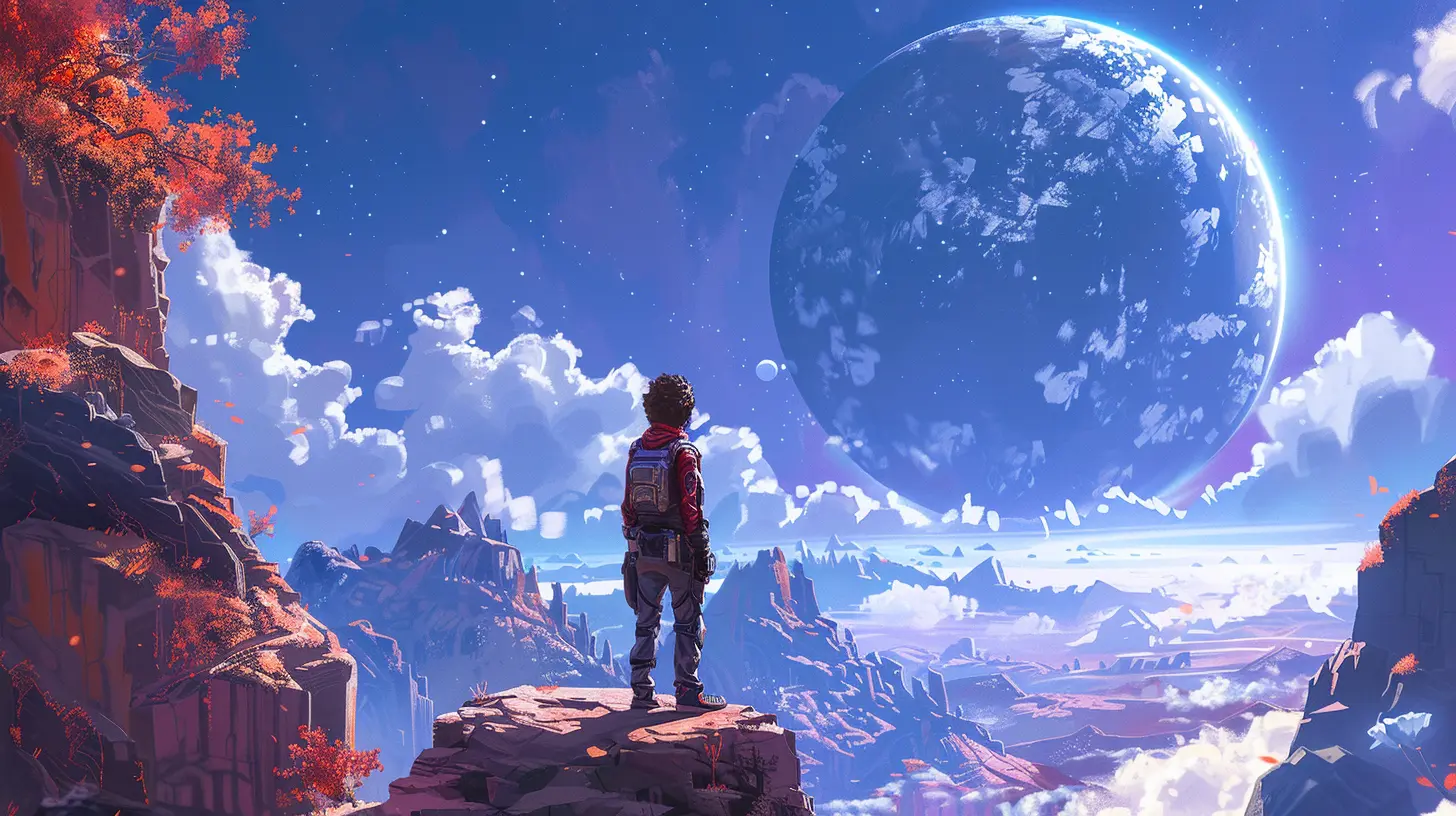How to Keep Track of Early Access Games’ Progress Without Getting Lost
26 May 2025
Early access games are like unfinished puzzles—you can see the pieces coming together, but it’s not quite a full picture yet. For gamers who love getting in on the ground floor and watching a game evolve over time, early access titles are an enticing playground. But let’s be real: keeping up with an early access game’s progress can sometimes feel like trying to organize a herd of cats. Updates, patch notes, roadmaps—it’s a lot to manage.
So, how do you keep track of an early access game’s progress without feeling like your brain is about to short-circuit? Good news: it’s easier than you think. All you need is a little strategy, some simple tools, and a dash of patience. Let’s dive right in!
1. Follow the Official Channels
This may seem like a no-brainer, but you’d be surprised how many people skip this step. Most developers pour a lot of effort into keeping their community informed through platforms like Steam, Discord, Twitter, and Reddit.- Steam Announcements: If you’ve bought an early access game on Steam, you’re already one click away from all the major updates. Head to the game’s Store Page and look for the “News” or “Updates” section. Developers often post detailed patch notes, so you’re never left in the dark.
- Join Their Discord: Almost every early access game has a dedicated Discord server. Think of it as a VIP backstage pass. Here, you’ll find direct communication with the devs, sneak peeks, and answers to burning questions.
- Follow Them on Social Media: Twitter (or X, depending on when you’re reading this) is where developers often share bite-sized updates, teasers, and memes. If you want quick and digestible updates, this is the place to be.
- Reddit Communities: Subreddits dedicated to your game can also be goldmines of information. Fans post theories, dissect updates, and sometimes even share developer Q&A recaps.
Pro tip: Pick one or two platforms and stick to those. You don’t have to follow everything—that’s how you burn out.
2. Understand the Game’s Roadmap
If you’re not familiar with roadmaps, think of them as a GPS for early access games. They give you a clear idea of where the game is headed and what’s planned for the future.Most roadmaps are broken into sections like “Short-Term Goals,” “Mid-Term Features,” and “Long-Term Plans.” Here’s how you can stay on top of it:
- Bookmark Their Roadmap: Some developers host interactive roadmaps on their websites or platforms like Trello or Notion. Bookmark it and check in periodically.
- Watch for Major Milestones: Does the roadmap mention when multiplayer modes, new story chapters, or performance updates are coming? Mark those on your calendar (seriously, use your phone’s calendar app—it’s a lifesaver).
- Be Flexible: Developers are human. Timelines can—and often do—shift. Don’t get frustrated if things don’t happen as planned. Game dev is messy, and delays are part of the process.
3. Leverage Community Forums and Fan Sites
Community-driven spaces are often the heartbeat of early access games. They’re where passionate players come together to discuss progress, share tips, and even dig into the nitty-gritty details that devs might not publicly share.- Fan Wikis: Fan-made wikis are an incredible resource. They often catalog every tiny update and feature, giving you a bird’s-eye view of how a game has evolved.
- Forums and Threads: Gaming forums (like ResetEra or GameFAQs) and Reddit threads are buzzing with chatter. Participating in these conversations can help you pick up on details you might’ve missed.
- YouTube and Twitch: Some content creators dedicate themselves to tracking the progress of specific early access games. Watching their breakdowns can save you tons of time scrolling through patch notes.
The beauty of fan communities? They’ll often do the heavy lifting for you. All you need to do is check in occasionally to stay informed.
4. Set Realistic Expectations
Here’s the hard truth about early access games: progress can be slow. Developers might push weekly updates or go radio silent for months. And that’s perfectly normal.To keep yourself from losing interest, remind yourself of these key points:
- Perfection Takes Time: Developers aren’t trying to frustrate you with delays—they’re trying to deliver a quality game. Think of it like slow-cooking a meal: it’s worth the wait.
- Not Every Update Will Be Exciting: Some updates are game-changers, like new levels or mechanics. Others are smaller, like bug fixes or UI tweaks. Either way, it’s all progress.
- Take Breaks: It’s okay to step away from a game for a while. You don’t need to obsess over every single patch. When you revisit it later, it might feel like an entirely new experience!
5. Use Tools to Stay Organized
If you’re juggling multiple early access games, it’s helpful to use tech to keep everything straight. After all, your brain is great, but it’s not a spreadsheet.- Google Calendar or Reminders: Use your calendar to jot down upcoming updates or milestones you find on the roadmap. That way, you won’t forget when the “big patch” is dropping.
- RSS Feeds: If the game has a blog or website, use an RSS reader (like Feedly) to get updates delivered directly to you. It’s like having a news butler!
- Trello or Notion: Feeling extra organized? Create a little board for each game you’re tracking. You can log updates, milestones, and even your own wishlists for features.
Honestly, it’s like creating a cheat sheet for gaming—it might sound nerdy, but it works.
6. Engage with the Development Process
One of the coolest things about early access is that you’re not just a spectator—you can be part of the process. Many developers actively listen to their community’s feedback, so don’t be shy about speaking up.- Report Bugs: If you notice something’s broken, let the devs know! They’ll appreciate it, and it helps the game improve.
- Suggest Features: Got a killer idea for the game? Post it in their feedback threads. Who knows, your suggestion might make it into the final version.
- Participate in Betas: Some developers run beta tests for upcoming features. Joining these is a great way to see what’s coming and lend a helping hand.
Being involved makes the wait for updates feel less passive—and hey, it’s pretty rad to influence the direction of a game you love.
7. Don’t Forget to Have Fun
At the end of the day, early access games are supposed to be fun. If tracking progress starts feeling like homework, take a step back and remind yourself why you bought the game in the first place.Was it the concept? The gameplay? The chance to support an indie developer? Revisit the things that got you excited and focus on enjoying the game as it is—even if it’s not perfect yet.
Final Thoughts
Early access gaming is like being part of a band’s garage rehearsals before they hit the big stage. You get to see their ideas take shape, evolve, and (hopefully) blossom into something incredible. Sure, it takes patience and a bit of effort to keep up, but the payoff is worth it.By using tools, staying realistic, and engaging with the community, you can navigate the chaotic world of early access games without losing your mind—or your love for gaming. Now, go out there and enjoy the ride!
all images in this post were generated using AI tools
Category:
Early Access GamesAuthor:

Leandro Banks
Discussion
rate this article
3 comments
Asher McElveen
Great tips! Consistency and organization are key tools.
June 10, 2025 at 3:27 AM

Leandro Banks
Thank you! I'm glad you found the tips helpful. Consistency and organization can make a big difference in tracking progress!
Azura McMillan
Great tips! Staying organized makes following early access games much easier!
May 27, 2025 at 4:50 AM

Leandro Banks
Thank you! I’m glad you found the tips helpful for navigating early access games!
Anika Davis
What a fascinating topic! I'm eager to learn how to efficiently track early access games. Any specific tools or tips you recommend?
May 26, 2025 at 4:23 PM

Leandro Banks
Thank you! I recommend using platforms like SteamDB for tracking updates, and tools like Trello or Notion to organize your favorite games and their progress. Setting up alerts for developer announcements can also keep you in the loop!



